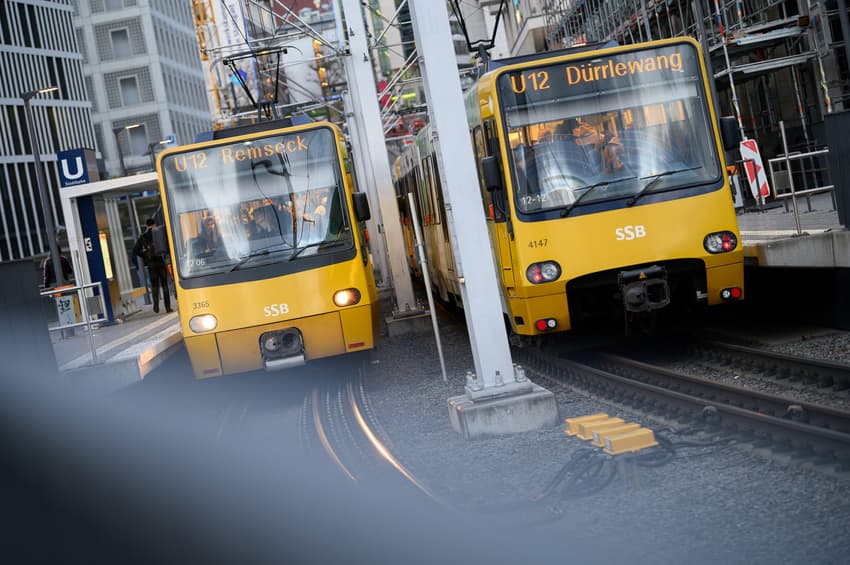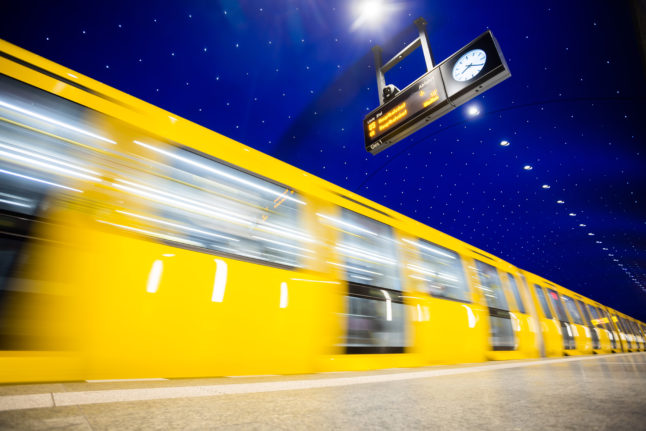Where in Germany public transport prices are increasing in 2023

Despite the introduction of the €49 ticket in 2023, many transport associations around Germany are hiking their prices to compensate for rising energy and personnel costs. Here's what to expect.
Numerous transport associations around Germany have announced higher public transport fares for the new year - largely as a result of increased energy costs.
The €49 ticket, which the federal and state governments plan to introduce next year at a still-unannounced date, is unlikely to change these prices - at least in the short-term. Available Germany-wide, the €49 'Deutschlandticket' will be available through a subscription service, and applicable to all regional transport in the country.
READ ALSO: When is Germany's €49 ticket coming - and how long will it last?
How much more expensive will transport around Germany become as of January 1st?
Depending on the region, ticket prices in Germany will rise by between 1.4 percent and 8.8 percent, according to a DPA evaluation of costs at a dozen major transport associations.
Prices are slated to rise the most for the Verkehrsverbund Rhine-Neckar, which is a mixed association covering parts of Hesse, Rhineland-Palatinate and Baden-Württemberg.
Starting in January, bus and train fares will rise in the region by an average of 8.83 percent.
By contrast, the Verkehrsverbund Rhine-Main and the Verkehrsverbund Bremen/Lower Saxony (VBN) will see more moderate price increases. Fares are slated to become 1.4 percent (VBN) and 1.5 percent (RMV) more expensive on average from January 1st..
The Verkehrsverbund Berlin-Brandenburg (VBB) will raise its prices a little later, on April 1st, by an average of 5.6 percent.
At Verkehrsverbund Rhein-Ruhr in North Rhine-Westphalia, the average increase is 3.9 percent, and at the neighboring Verkehrsverbund Rhein-Sieg (VRS) it is 5.44 percent. The price hikes are set to kick in in January and July respectively.
The price increases generally affect single, day and group tickets. However, some associations are also raising subscription prices.
 A U-Bahn train arrives at the Museumsinsel station in Berlin. Photo: picture alliance/dpa | Christoph Soeder
A U-Bahn train arrives at the Museumsinsel station in Berlin. Photo: picture alliance/dpa | Christoph Soeder
When will transport become more expensive?
In most of the associations examined, the price hikes will take effect on January 1st. In some others, however, they have already been in place for months.
In the Warnow public transport association in the Rostock district, for example, prices were already upped by an average of 6.6 percent on October 1st. In Munich and the surrounding area, public transport journeys - including seasonal tickets - have cost an average of 6.9 percent more since the timetable change on December 11th.
Elsewhere, however, it is still taking time. The Central German Transport Association (MDV), which serves parts of Saxony, Saxony-Anhalt and Thuringia, is not planning a fare increase until August of next year.
Why are the associations raising prices?
The Association of German Transport Companies (VDV) cited the sharp rise in costs for electricity, diesel and personnel as the reason for the measures.
In addition, many passengers are currently not taking out a public transport subscription because they prefer to wait for the introduction of the €49 ticket. The associations are thus trying to compensate for the lack of revenue.
READ ALSO: 5 things to know about public transport in Germany
Will the associations lower prices again when the €49 ticket is introduced?
That is not to be expected: it will likely take several months before the money reaches transport associations and companies, the VDV said. The start date for the €49 ticket has not even been set yet, although the German government has projected April or May as possible start dates.
The companies also will need more money for their liquidity in order to pay their daily operating costs.
Comments
See Also
Numerous transport associations around Germany have announced higher public transport fares for the new year - largely as a result of increased energy costs.
The €49 ticket, which the federal and state governments plan to introduce next year at a still-unannounced date, is unlikely to change these prices - at least in the short-term. Available Germany-wide, the €49 'Deutschlandticket' will be available through a subscription service, and applicable to all regional transport in the country.
READ ALSO: When is Germany's €49 ticket coming - and how long will it last?
How much more expensive will transport around Germany become as of January 1st?
Depending on the region, ticket prices in Germany will rise by between 1.4 percent and 8.8 percent, according to a DPA evaluation of costs at a dozen major transport associations.
Prices are slated to rise the most for the Verkehrsverbund Rhine-Neckar, which is a mixed association covering parts of Hesse, Rhineland-Palatinate and Baden-Württemberg.
Starting in January, bus and train fares will rise in the region by an average of 8.83 percent.
By contrast, the Verkehrsverbund Rhine-Main and the Verkehrsverbund Bremen/Lower Saxony (VBN) will see more moderate price increases. Fares are slated to become 1.4 percent (VBN) and 1.5 percent (RMV) more expensive on average from January 1st..
The Verkehrsverbund Berlin-Brandenburg (VBB) will raise its prices a little later, on April 1st, by an average of 5.6 percent.
At Verkehrsverbund Rhein-Ruhr in North Rhine-Westphalia, the average increase is 3.9 percent, and at the neighboring Verkehrsverbund Rhein-Sieg (VRS) it is 5.44 percent. The price hikes are set to kick in in January and July respectively.
The price increases generally affect single, day and group tickets. However, some associations are also raising subscription prices.

When will transport become more expensive?
In most of the associations examined, the price hikes will take effect on January 1st. In some others, however, they have already been in place for months.
In the Warnow public transport association in the Rostock district, for example, prices were already upped by an average of 6.6 percent on October 1st. In Munich and the surrounding area, public transport journeys - including seasonal tickets - have cost an average of 6.9 percent more since the timetable change on December 11th.
Elsewhere, however, it is still taking time. The Central German Transport Association (MDV), which serves parts of Saxony, Saxony-Anhalt and Thuringia, is not planning a fare increase until August of next year.
Why are the associations raising prices?
The Association of German Transport Companies (VDV) cited the sharp rise in costs for electricity, diesel and personnel as the reason for the measures.
In addition, many passengers are currently not taking out a public transport subscription because they prefer to wait for the introduction of the €49 ticket. The associations are thus trying to compensate for the lack of revenue.
READ ALSO: 5 things to know about public transport in Germany
Will the associations lower prices again when the €49 ticket is introduced?
That is not to be expected: it will likely take several months before the money reaches transport associations and companies, the VDV said. The start date for the €49 ticket has not even been set yet, although the German government has projected April or May as possible start dates.
The companies also will need more money for their liquidity in order to pay their daily operating costs.
Join the conversation in our comments section below. Share your own views and experience and if you have a question or suggestion for our journalists then email us at [email protected].
Please keep comments civil, constructive and on topic – and make sure to read our terms of use before getting involved.
Please log in here to leave a comment.